The Linguistics of Mass Persuasion: How Politicians Make “Fetch” Happen (Part I)
Inspired by the Gretchen famous line in the film Mean Girls, Chi Luu explores how politicians mobilize language to sway public opinion.

Politicians of all stripes and the irrepressible Gretchen Wieners, a character from the cult film Mean Girls , have one surprising thing in common: they all want to make “fetch” happen . That is, in a world of high-stakes politics (high school or otherwise), they’re all trying to make friends and influence people—through the magic of language manipulation. Sadly for Gretchen, “fetch” just isn’t going to happen, but at least the notion of “making fetch happen” (meaning to successfully start a cultural/linguistic trend) probably has—and it turns out politicians are pretty good at it. Throughout political history, scholars have been fascinated by the powerful words—speeches, slogans, catchphrases, and political cant—used by public figures to sway their audiences into massive undertakings, from matters of war to peace to defining the national identity. But can language really be used as a weapon of mass persuasion—and just how easy is it to accomplish?

“Language is an important force in shaping the political,” according to Daniel T. Rodgers, who views American political language throughout history as “a field of combat: words are weapons to be used, battlegrounds to be conquered or defended.” In the matter of swaying public opinion, political rhetoric can get pretty vicious. It’s easy enough to trade well-worn slurs and suffer the social consequences. But what we’re beginning to see is that the more subtle the manipulation of language and the more unobtrusive the word-as-weapon becomes, the more insidious its effect on an unsuspecting public.

How to Make Neologisms Happen
So how does this all work? The answer is naturally more complex than we can cover here. Let’s first look at how neologisms might catch on in a language. Unfortunately, we don’t exactly have the secret formula for how to make fetch happen. However, if certain conditions are met, a new term or word sense can have a pretty decent chance of loitering with intent in a language. Linguist Allan Metcalf in Predicting New Words cooks up what he calls FUDGE, a handy mnemonic for the main factors necessary for a new term to thrive in the language:
F requency – The term should be used repeatedly U nobtrusiveness – The term shouldn’t be too noticeably weird, so it’s easy to pick up D iversity – The term should be used across different groups G enerating new forms and meanings – The term should be able to be used flexibly in different ways E ndurance – The concept the term refers to should be long-lasting
“On Message”
So how does this play out in political language, propaganda, and mass persuasion? Public figures like politicians have a huge advantage over the Gretchen Wieners of the world when it comes to making political fetch happen. For one thing, well-known powerful figures automatically have the attention of the public. Mass media institutions, from the press to social media, follow them around, broadcasting, sharing, and reinterpreting their every word, on repeat, even if they actively disagree with their agenda and ideology .
In the realm of political theater, if you want to “make fetch happen” you crucially have to stay “on message”. As we consume that message again and again, we are also being taught how to receive it. Against the “shock and awe” onslaught of mass repetition, new phrases and meanings are rarely questioned, and are picked up and used without much pushback. However, staying “on message” once meant robotically repeating the same easily digestible party-line slogans and carefully crafted catchphrases. You’ll always have your obvious “ cheese eating surrender monkeys “-type political slurs, but can we always track the political intentions behind more benign phrases like “ climate change “—a politically motivated term that sneakily replaced the use of “global warming” when our backs were turned? These days, subtlety is key, especially with growing public awareness and a certain level of cynicism. Once this trick of political rhetoric is made too obvious , it becomes much less effective . Mass persuasion has to be linguistically unobtrusive.
Clearly, without mass media to report and shape “the message” and encourage its general use, it’s harder for new terms to catch on. As Michael Silverstein, in his study on the poetics of politics , puts it:
We, the potential electorate […] learn how to listen to and look at political communication […] always over the shoulders of media commentators and shapers of ‘message.’ We have to appreciate, then, how political speech in the multi-layered jumble of the mass media is like articulate noise shouted into a chasm, a canyon. If it doesn’t just dissipate and disappear, it echoes in particular ways as it is picked up and selectively repeated and interpretatively reshaped by a mediating press and other institutions in the public sphere.
As an example, in 2006, media commentators , such as Hendrik Herzberg of the New Yorker , observed the emergence of a new, “ungrammatical” term being used called “Democrat Party”, in place of the official “Democratic Party”. “Democrat”, a noun, was being used as an adjective, which served to sever the central notion of democracy from the party’s name and turn it into a party of Democrats. It was a minute change, but Herzberg suggested that “there’s no great mystery about the motives behind this deliberate misnaming. ‘Democrat Party’ is a slur, or intended to be—a handy way to express contempt.” He attributed the near uniform use of it among Republicans like Frank Luntz and New Gingrich, who was responsible for the infamous 1990 memo, “Language: A Key Mechanism of Control.” And the mainstream media followed suit, using the term “Democrat” as an adjective rather than as a noun in similar ways and in new contexts, spreading it even further.
Who Are You and Who Do You Fear?
In politics, it’s really not just a matter of ushering in a neologism for the pure joy of seeing language change. You also have to somehow make people want to own and use these new terms. In the political realm, the most successful terms are often noun phrases composed of common words instead of newly coined words. The new terms and nuances being introduced are calculated to frame and control the narrative that’s being told, to deflect opposition and obscure information, to bring up positive or negative images—ultimately to further a political agenda. Somehow, these new terms are chosen, widely disseminated, and instantly infused with persuasive symbolism or emotive nuance that is not always clearly defined—yet clearly works.
When it comes to making a new political catchphrase stick, emotions can run high. The subtle rhetoric in these terms seems to almost force a stance on identity and the values you hold. This boils down to two basic emotional systems; namely, deciding which group you belong to and which group you fear. It’s the timeless question of us vs . them. Take note of recent constructions such as “anchor babies ,” “liberal media,” “anti-union,” “tax relief ,” or the phrase, “the war on terror/women/Christmas/etc .” Virtually any issue can be re-jigged to be more positive or negative. Depending on who you identify with, you’ll tend to use and share that group’s communication styles.
It’s clear that politics has learned a lot from advertising. Michael Silverstein sees branding and political messages as closely related in their abilities to manipulate values and identity.
‘Brand’ implies potential stories, the most important being how people, as potential and actual consumers, project cultural values onto the commodity so as to organize their relationship of use of that commodity.
So brands persuade people to buy them and buy into them (and not their competitors), which also projects a particular lifestyle choice. Just like brand advertising, political language shapes an audience’s emotional identity by giving them something to be a part of (with ideological goals to work towards), and something to watch out for (a competing force to fight against or values to despise). This fascinating linguistic manipulation of emotion and identity is particularly effective in an age where information can be shared across vast distances in a split second, and in increasingly sophisticated and subtle ways.
So in politics, it’s not just a question of making fetch happen for the fun of it. New terms, new meanings, are carefully chosen to exploit your hopes and fears. But exactly how is language weaponized? You may be surprised at how little it actually takes.
In part two, Lingua Obscura will delve deeper into the art of political persuasion through language. (It turns out it involves linguistic cliffhangers…and a leap of faith.)

JSTOR is a digital library for scholars, researchers, and students. JSTOR Daily readers can access the original research behind our articles for free on JSTOR.
Get Our Newsletter
Get your fix of JSTOR Daily’s best stories in your inbox each Thursday.
Privacy Policy Contact Us You may unsubscribe at any time by clicking on the provided link on any marketing message.
More Stories

- The Genius of Georgette Chen

From Saint to Stereotype: A Story of Brigid

Christy’s Minstrels Go to Great Britain

Searching for Home in Hmong American Writing
Recent posts.
- Beware the Volcanoes of Alaska (and Elsewhere)
- Seeing the World Through Missionaries’ Eyes
- The Border Presidents and Civil Rights
- Eurasianism: A Primer
Support JSTOR Daily
Sign up for our weekly newsletter.
We will keep fighting for all libraries - stand with us!
Internet Archive Audio

- This Just In
- Grateful Dead
- Old Time Radio
- 78 RPMs and Cylinder Recordings
- Audio Books & Poetry
- Computers, Technology and Science
- Music, Arts & Culture
- News & Public Affairs
- Spirituality & Religion
- Radio News Archive

- Flickr Commons
- Occupy Wall Street Flickr
- NASA Images
- Solar System Collection
- Ames Research Center

- All Software
- Old School Emulation
- MS-DOS Games
- Historical Software
- Classic PC Games
- Software Library
- Kodi Archive and Support File
- Vintage Software
- CD-ROM Software
- CD-ROM Software Library
- Software Sites
- Tucows Software Library
- Shareware CD-ROMs
- Software Capsules Compilation
- CD-ROM Images
- ZX Spectrum
- DOOM Level CD

- Smithsonian Libraries
- FEDLINK (US)
- Lincoln Collection
- American Libraries
- Canadian Libraries
- Universal Library
- Project Gutenberg
- Children's Library
- Biodiversity Heritage Library
- Books by Language
- Additional Collections

- Prelinger Archives
- Democracy Now!
- Occupy Wall Street
- TV NSA Clip Library
- Animation & Cartoons
- Arts & Music
- Computers & Technology
- Cultural & Academic Films
- Ephemeral Films
- Sports Videos
- Videogame Videos
- Youth Media
Search the history of over 866 billion web pages on the Internet.
Mobile Apps
- Wayback Machine (iOS)
- Wayback Machine (Android)
Browser Extensions
Archive-it subscription.
- Explore the Collections
- Build Collections
Save Page Now
Capture a web page as it appears now for use as a trusted citation in the future.
Please enter a valid web address
- Donate Donate icon An illustration of a heart shape
Power, influence, and authority : an essay in political linguistics
Bookreader item preview, share or embed this item, flag this item for.
- Graphic Violence
- Explicit Sexual Content
- Hate Speech
- Misinformation/Disinformation
- Marketing/Phishing/Advertising
- Misleading/Inaccurate/Missing Metadata
obscured text back cover
![[WorldCat (this item)] [WorldCat (this item)]](https://archive.org/images/worldcat-small.png)
plus-circle Add Review comment Reviews
76 Previews
5 Favorites
Better World Books
DOWNLOAD OPTIONS
No suitable files to display here.
EPUB and PDF access not available for this item.
IN COLLECTIONS
Uploaded by station63.cebu on June 20, 2020
SIMILAR ITEMS (based on metadata)

Open Access Kent State (OAKS)
- Open Access Kent State
- Political Discourse Analysis: Exploring the Language of Politics and the Politics of Language
- Chicago/Turabian
Street Address
Mailing address.
- oaks [at] kent [dot] edu
Quick Links
- Frequently Asked Questions
- Rights and Reuse
Information
- Accessibility
- Annual Security Reports
- Emergency Information
- For Our Alumni
- For the Media
- Health Services
- Jobs & Employment
- May 4th, 50th Commemoration
- Privacy Statement
- Website Feedback
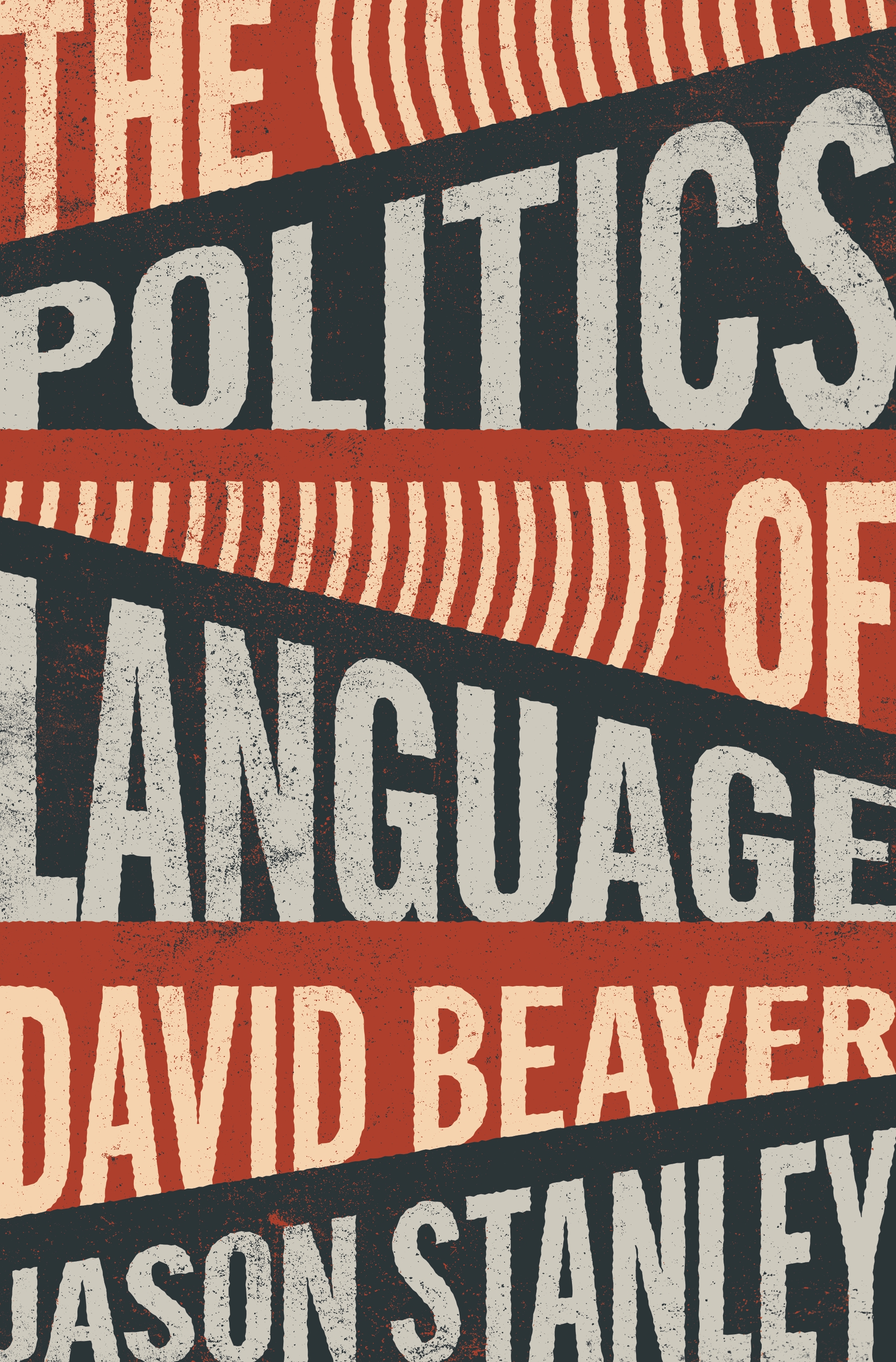
The Politics of Language
David Beaver
Before you purchase audiobooks and ebooks
Please note that audiobooks and ebooks purchased from this site must be accessed on the Princeton University Press app. After you make your purchase, you will receive an email with instructions on how to download the app. Learn more about audio and ebooks .
Support your local independent bookstore.
- United States
- United Kingdom
- David Beaver and Jason Stanley
A provocative case for the inherently political nature of language

- Look Inside
- Download Cover
In The Politics of Language , David Beaver and Jason Stanley present a radical new approach to the theory of meaning, offering an account of communication in which political and social identity, affect, and shared practices play as important a role as information. This new view of language, they argue, has dramatic consequences for free speech, democracy, and a range of other areas in which speech plays a central role. Drawing on a wealth of disciplines, The Politics of Language argues that the function of speech—whether in dialogue, larger group interactions, or mass communication—is to attune people to something, be it a shared reality, emotion, or identity. Reconceptualizing the central ideas of pragmatics and semantics, Beaver and Stanley apply their account to a range of phenomena that defy standard frameworks in linguistics and philosophy of language—from dog whistles and covert persuasion to echo chambers and genocidal speech. The authors use their framework to show that speech is inevitably political because all communication is imbued with the resonances of particular ideologies and their normative perspectives on reality. At a time when democracy is under attack, authoritarianism is on the rise, and diversity and equality are being demanded, The Politics of Language offers a powerful new vision of the language of politics, ideology, and protest.

“ The Politics of Language is destined to be a classic. It will significantly recast how philosophers and others think about the power of language to shape social reality and individual identity. With its groundbreaking analysis, the book is well positioned to be the leading source on nonideal philosophy of language for years to come. Anyone concerned with understanding the power of language will profit immeasurably from its insights.”—Lynne Tirrell, University of Connecticut
“The scope and breadth of this book is a thing of awe. For the first time, The Politics of Language systematically puts analytic philosophy of language and formal semantics into productive contact with a host of other fields that have studied the politics of language—from communication theory to Black political thought—all while drawing on examples of political speech that many people feel an urgent need to understand. This is an energizing and potentially transformative book.”—Susanna Siegel, Harvard University
Stay connected for new books and special offers. Subscribe to receive a welcome discount for your next order.
- ebook & Audiobook Cart

“Politics and the English Language.” By George Orwell.
LITERATURE MATTERS
In his 1946 essay “Politics and the English Language,” George Orwell poses a thoughtful question: Does language experience “natural growth” or is it shaped “for our own purposes”? In other words, does the English language organically evolve over time or is it purposefully manipulated in order to affect the social order? Anyone familiar with Orwell’s body of work can probably guess at the trajectory of his response. Although one could argue that this seminal essay on 20th-century linguistics was written merely to lament the “general collapse” of language as a reflection of the general collapse of civilization following the Second World War, Orwell’s ultimate purpose is to show that social activists can unduly manipulate language for their own ends by obscuring meaning, corrupting thought, and rendering language a minefield in the political landscape. Why? Orwell says: to effect changes in thought and affections and to shame those who somehow prove impervious to manipulation.
Orwell dramatizes this assertion in Nineteen Eighty-Four . Published three years after “Politics and the English Language,” the iconic dystopic novel imagines a futuristic government that manipulates language so that its citizens conform in thought, word, and deed to a narrow political orthodoxy. Language, in fact, is the primary change agent, assisted by government-engineered fearmongering and savage punishments for language dissidents.
Just as language matters in the world of Nineteen Eighty-Four , it matters in our world too. Consider, for example, the basics of “inclusive language.” Back when Orwell was writing, and throughout much of the 20th century, the accepted universal singular pronouns were he , him , and his , a reality codified in every English grammar text published before 1999. These pronouns referred to any individual, whether male or female, as in “Every student should bring his book to class.” The meaning was clear, the convention was understood, and because it was an accepted grammatical convention, no one was denounced as sexist for applying its usage. Some years later, in an effort to be “inclusive,” language handlers in academia and the publishing industry pointed out that the convention itself was sexist and reinforced sexism in society. If they could change the convention, they reasoned, they could change society.
The language handlers first promoted the alternative “inclusive” usage of he or she , him or her , and his or hers — and soon thereafter demanded it. Those who continued using traditional grammatical constructions that included the universal pronouns he , him , and his (especially men) were often branded, on the basis of their grammar alone, as sexists. But mere social stigma later gave way to punitive actions. For example, in 2013, California State University, Chico, revised its definition of sexual harassment and sexual violence to include “continual use of generic masculine terms such as to refer to people of both sexes.” Thus, Chico profs who say, “Every student should bring his book to class” are susceptible to disciplinary actions, up to and including dismissal. As you might imagine, Chico is not alone in this. Rather, this is the norm on most college campuses.
But now, in 2020, it is no longer acceptable to use he or she or him or her . What was once promoted and then demanded by language handlers as inclusive has now been deemed verboten by the same people! Who are these language handlers? In brief, they are the engineers of the English-language style manuals used by academia, the media, and the publishing industry, all easy prey to special-interest lobbyists who demand language changes to promote their sociopolitical agendas. Last year, for example, the American Psychological Association (APA) announced a change to its stylebook, advocating for the singular they because it is “inclusive of all people and helps writers avoid making assumptions about gender.” The APA style guide makes it clear that using his or her is no longer inclusive and no longer acceptable. This could not have happened without the proponents of transgenderism pushing for the manipulation of language. In order for the APA’s statement to make any sense — “they…is inclusive of all people and helps writers avoid making assumptions about gender” — one is forced to accept the premises of transgenderism, including the theory of so-called nonbinary gender. If one is to accept the usage of the singular they , one must also accept the fantasy that an infinite number of genders exists and that language is tied to something called “gender expression” rather than to sex, which is binary (i.e., male and female).
In 2018 the National Council of Teachers of English (NCTE) released a “Statement on Gender and Language,” promoting the use of the singular they as the only inclusive universal pronoun. In its position statement, the NCTE actually spells out the premises one must accept in order to make sense of the singular they . This is not about language clarity or precision; this is about advancing a sociopolitical agenda that requires everyone — yes, everyone — to accept the following terms:
Gender identity: an individual’s feeling about, relationship with, and understanding of gender as it pertains to their sense of self. An individual’s gender identity may or may not be related to the sex that individual was assigned at birth.
Gender expression: external presentation of one’s gender identity, often through behavior, clothing, haircut, or voice, which may or may not conform to socially defined behaviors and characteristics typically associated with being either masculine or feminine.
Cisgender: of or relating to a person whose gender identity corresponds with the sex they were assigned at birth.
Transgender: of or relating to a person whose gender identity differs from the sex they were assigned at birth. This umbrella term may refer to someone whose gender identity is woman or man, or to someone whose gender identity is nonbinary (see below).
Nonbinary: of or relating to a person who does not identify, or identify solely, as either a woman or a man. More specific nonbinary identifiers include but are not limited to terms such as agender and gender fluid (see below).
Gender fluid: of or relating to individuals whose identity shifts among genders. This term overlaps with terms such as genderqueer and bigender, implying movement among gender identities and/or presentations.
Agender: of or relating to a person who does not identify with any gender, or who identifies as neutral or genderless.
The NCTE, like the APA, the Chicago Manual of Style , and the Associated Press, not only advocates using the singular they , it also prohibits “using he as a universal pronoun” and “using binary alternatives such as he/she , he or she , or (s)he .” And, in case you don’t understand the prohibition, the NCTE provides an example of the forbidden “exclusionary (binary)” language: “Every cast member should know his or her lines by Friday” must be rephrased as “Every cast member should know their lines by Friday.” But the new convention presents an offense against the dignity of traditional grammar usage, as the plural pronoun, their, does not agree with its singular subject, cast member . (Really now, a simpler rewrite would render the sentence both grammatically correct and “inclusive”: All cast members should know their lines by Friday .) And, according to NCTE, in the case of a student named Alex, who declares that his preferred pronouns are they , them , and their, a teacher should say, “Alex needs to learn their lines by Friday.” Yes, seriously, this is the example given by the NCTE. (And whose lines, one may ask? Everyone’s lines? This phrasing is lacking in precision and clarity, and this from the organization that exerts enormous influence over our nation’s high-school English teachers!) To be sure, teachers and students will be forced to utter the ridiculous: Alex needs to learn their lines by Friday . Failing to do so could, in the near future, be construed as gender harassment and be cause for expulsion or sacking.
So, why does it matter what the APA or the Chicago Manual of Style or the NCTE has to say on the matter of nonbinary, gender-inclusive language and the singular they ? Well, the APA sets the writing style and format conventions for academic essays for many college and high-school students, as well as for scholarly articles and books. The Chicago Manual of Style (published by the University of Chicago) sets the editorial standards and conventions that are widely used in the publishing industry. And the NCTE, as mentioned above, sets the tone for high-school English teachers across the nation, those who will teach our children to read, write, and speak.
In “Politics and the English Language,” Orwell calls this “an invasion of one’s mind” — again, the purposeful manipulation of language in order to corrupt one’s thoughts and affections. Thus, the choice of academia, the media, and the publishing industry to adopt the singular they is not simply about word choice — as silly and illogical as it may be: Alex needs to learn their lines by Friday! — it is about forcing students and others to accept the language of transgenderism and the ideological corollaries behind the vocabulary. It is asking us all to accept something that is less than reality. Pronouns, we are told, are no longer related to the body (male and female) but to the mind, how one “identifies” or “expresses” the social construct of gender. Reality is denied, and the fluid world of one’s nonbinary fancy replaces it.
It is worth noting that last year the Vatican’s Congregation for Catholic Education published a 30-page document, “Male and Female He Created Them,” on this very topic. Quoting Pope Francis, it explains that gender theory “denies the difference and reciprocity in nature of a man and a woman and envisages a society without sexual differences, thereby eliminating the anthropological basis of the family.” This ideology, Pope Francis explains, promotes “a personal identity and emotional intimacy radically separated from the biological difference between male and female. Consequently, human identity becomes the choice of the individual, one which can also change over time.” Thus, in the case of the Catholic educator or the Catholic student, one must compromise one’s religious principles in order to conform to the industry standards of language.
This attempt to transplant pronouns from the body to the mind, Orwell might say, is an attempt to destroy our ability to communicate. According to this new norm, one can now choose from a multitude of “gender identities” — or simply make up a new one — none of which has any fixed link to a specific set of pronouns. (Some recently emerging gender pronouns include zir, ze, xe, hir, per, ve, ey, hen , and thon . And there are more! Facebook, for example, offers 50 options. Fifty!) In fact, following this reasoning, gender expressionists may, at any time and for any reason, decide to change their preferred personal pronouns but without changing their gender identity; they may also decide to change their gender identity without changing their preferred pronouns — or they may choose to change both.
This is the kind of linguistic pretension that, as Orwell warns, obscures meaning, corrupts thought, and renders language a minefield in the political landscape. Why a minefield? As Orwell illustrated in Nineteen Eighty-Four , language-engineering is an attempt to shame or punish those who disagree with the ascribed linguistic orthodoxy. And, again, to what end? As Chicago-based community activist Saul Alinsky famously wrote in his manifesto Rules for Radicals (1971), “He who controls the language controls the masses.” (Note his use of “sexist language” by way of the universal singular pronoun he. ) Alinsky, an enthusiastic advocate of manipulating language for political purposes, agrees with Orwell: It’s all about thought control; it’s about superimposing a sociopolitical ideology on the masses; it’s about altering our understanding of the world; it’s about customizing the language to effect whimsical social change. It’s ultimately about altering reality so that, as Orwell dramatized in Nineteen Eighty-Four , we come to accept that “war is peace,” that “freedom is slavery,” and that two plus two equals five.
Orwell, as evidenced by “Politics and the English Language,” believes that language should reflect reality. If it doesn’t, what possible limits could be placed on misleading, manipulative language, whether in grade-school textbooks, government documents, or political campaign literature? If language is “always evolving,” as many commentators have reasoned in their recent support of so-called nonbinary, gender-inclusive language (including the singular they ), what is stopping anyone from using this as an excuse to effect any change in any language for any reason at any time?
©2020 New Oxford Review. All Rights Reserved.
To submit a Letter to the Editor, click here: https://www.newoxfordreview.org/contact-us/letters-to-the-editor/

Enjoyed reading this?
READ MORE! REGISTER TODAY

Choose a year
- Language & Its Destruction
- Literature & Literary Criticism
- Literature Matters by Michael S. Rose
- Political Correctness
- Transgenderism & Conflation of the Sexes
"Catholicism's Intellectual Prizefighter!"
- Karl Keating

Strengthen the Catholic cause.
SUPPORT NOR TODAY
You May Also Enjoy
The loss of spiritual paternity within contemporary Catholicism is profound.
Before the "Common Era," did mankind live in an uncommon era?
The NEW OXFORD REVIEW is over 20 years old now, and we’ve always operated on…
Academia.edu no longer supports Internet Explorer.
To browse Academia.edu and the wider internet faster and more securely, please take a few seconds to upgrade your browser .
Enter the email address you signed up with and we'll email you a reset link.
- We're Hiring!
- Help Center


Linguistics as a Political Tool? Language Planning and Language Policy as a Means of Uncovering Linguistic and Political Ideologies

2019, Political Behavior: Cognition, Psychology, & Behavior eJournal
Related Papers
Muhammad Jamil
Lukman Budiarto
Bijan Nassiri
As a matter of fact, the English language has been expanded all over the world in recent decades. That's because of the necessity of the people around the world. Moreover, the world's situation now demonstrates an essential community to control what is going on on our planet. In this case, the English language is a vital tool to inform people all around the world.
Alec Marantz
What do linguists do?1 Or, rather, what do linguists do that draws such luminaries as the late Tom Wolfe2 to complain so publicly about our enterprise?3 I’ll confine my discussion here to what we call “syntax,” which is at the core of so-called “Generative Grammar,” the way of doing linguistics that has dominated linguistics departments in the US for the past 50 years or so. Linguists deeply engaged in the enterprise of syntax feel that it’s obvious what they are doing is not only fascinating, but that it also has led to a set of interesting and important results. However, outsiders can be skeptical, and my own view is that this skepticism can leads to hostility–and bad press –for two reasons. As I will briefly illustrate with some examples from my own research, the actual work of linguists is esoteric and specific. Not everyone gets excited about the details of ant colonies, for example, and not everyone may be kept up at night by the connection between predicate possession in Engl...
Journal of English Linguistics
Buhari Fakkah
The Definition of Linguistics is the scientific study of language. As a science, linguistics are divided into several perspective such as in the methodologies we can find historical or comparative linguistics and descriptive linguistic. Then in the time series of linguistics are synchronic and diachronic linguistics. In the system of linguistics also we can find phonetics, phonology, morphology, syntax and semantics. Thus, in sociology and psychology respectively , the linguists will discuss sociolinguistics and psycholinguistics.
BEST Journals
This paper deals with linguistics and its relation to other fields of study. Linguistics is the scientific study of language and people think that it has no relation to literature. But this paper will discuss that it is an inseparable part of literature and it is also related to language, community, imagined community and stylistics.
Linguistic Issues in Language Technology
Tracy Holloway King
Overall, although there is not the intense overlap between theoretical and computational linguistics that many seem to wish, I do not see this as a problem from a practical perspective. Everyone is working towards a common goal to understand language and to unearth its structure. By approaching the problem from different angles and with different immediate goals, we gain a broader perspective on the problem, and language is complex enough to need this broad perspective. As with all fields and as with the (Xx*-)linguistic fields, there are some researchers who more naturally reach outside their immediate domain and who will see where there are convergences and contradictions. Forcing everyone into this role would slow the growth of the field as a whole given the vast amount of work still before us.
Linguistic Typology
Daniel W Hieber
A review article of R. M. W. Dixon's book I am a Linguist, and his theoretical approach known as Basic Linguistic Theory.
RELATED PAPERS
Biophysical Journal
David Fedida
African journal of agricultural research
Mustafa Cheema
Revue Francophone des Laboratoires
roberto debom
Randi AQuido
Baguiasri Mandane
AHMED MOHAMED ABDI
Critical Reviews in Biomedical Engineering
Jonath Sujan
Physical Review E
carlos pando
Archives of Clinical Neuropsychology
Grzegorz Mańko
International Journal of Instruction
abdul karim
Headache: The Journal of Head and Face Pain
Maya Elzière
Zagrożenia środowiskowe i cywilizacyjne
Jacek Doskocz
gita Prameswari
Jianzhong Wang
JAMA Internal Medicine
Fiona Havers
Parasitology Research
Mohammed Nour
Journal of Medical Case Reports
Moke Magoma
Pascal Besnard
Angewandte Chemie International Edition
Carolina García
Revista da Escola de Enfermagem da USP
Celia Sivalli
Arquivos Brasileiros de Cardiologia
Juan Yugar-Toledo
JualGoodiebagSerutPolos
jual goodiebag serut polos
Hygiea Internationalis An Interdisciplinary Journal for the History of Public Health
Vestnik Ûgorskogo gosudarstvennogo universiteta
Mikhail Rusanov
See More Documents Like This
RELATED TOPICS
- We're Hiring!
- Help Center
- Find new research papers in:
- Health Sciences
- Earth Sciences
- Cognitive Science
- Mathematics
- Computer Science
- Academia ©2024
- International edition
- Australia edition
- Europe edition
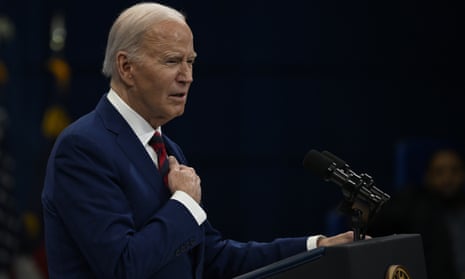
The Washington Book: How to Read Politics and Politicians review – unpicking the lexicon of America’s leaders
New York Times columnist Carlos Lozada examines the speeches, writing and linguistic tics of presidents and members of Congress to expose ‘inveterate deceivers’
P oliticians mince or mash words for a living, and the virtuosity with which they twist meanings makes them artists of a kind. Their skill at spinning facts counts as a fictional exercise: in political jargon, a “narrative” is a storyline that warps truth for partisan purposes. Carlos Lozada, formerly a reviewer for the Washington Post and now a columnist at the New York Times , specialises in picking apart these professional falsehoods. Analysing windy orations, ghostwritten memoirs and faceless committee reports, the essays in his book expose American presidents, members of Congress and supreme court justices as unreliable narrators, inveterate deceivers who betray themselves in careless verbal slips.
Lozada has a literary critic’s sharp eye, and an alertly cocked ear to go with it. Thus he fixes on a stray remark made by Trump as he rallied the mob that invaded the Capitol in January 2021. Ordering the removal of metal detectors, he said that the guns his supporters toted didn’t bother him, because “they’re not here to hurt me”. Lozada wonders about the emphasis in that phrase: did it neutrally fall on “hurt” or come down hard on “me”? If the latter, it licensed the rampant crowd to hurt Trump’s enemies – for instance by stringing up his disaffected vice-president Mike Pence on a gallows outside the Capitol.
Tiny linguistic tics mark the clash between two versions of America’s fabled past and its prophetic future. Lozada subtly tracks the recurrence of the word “still” in Biden’s speeches – for instance his assertion that the country “still believes in honesty and decency” and is “still a democracy” – and contrasts it with Trump’s reliance on “again”, the capstone of his vow to Make America Great Again. Biden’s “still” defensively fastens on “something good that may be slipping away”, whereas Trump’s “again” blathers about restoring a lost greatness that is never defined. Biden’s evokes “an ideal worth preserving”; Trump’s equivalent summons up an illusion.
At their boldest, Lozada’s politicians trade in inflated tales about origins and predestined outcomes, grandiose narratives that “transcend belief and become a fully formed worldview”. Hence the title of Hillary Clinton’s manifesto It Takes a Village , which borrows an African proverb about child-rearing and uses it to prompt nostalgia for a bygone America. Lozada watches Obama devising and revising a personal myth. Addressed as Barry by his youthful friends, he later insisted on being called Barack and relaunched himself as the embodiment of America’s ethnic inclusivity; his “personalised presidency” treated the office as an extension of “the Obama brand”. In this respect Trump was Obama’s logical successor, extending a personal brand in a bonanza of self-enrichment. The “big lie” about the supposedly stolen 2020 election is another mythological whopper. Trump admitted its falsity on one occasion when he remarked “We lost”, after which he immediately backtracked, adding: “We didn’t lose. We lost in the Democrats’ imagination.”
All this amuses Lozada but also makes him anxious. As an adoptive American – born in Peru, he became a citizen a decade ago – he has a convert’s faith in the country’s ideals, yet he worries about contradictions that the national creed strains to reconcile. A border wall now debars the impoverished masses welcomed by the Statue of Liberty; the sense of community is fractured by “sophisticated engines of division and misinformation”. Surveying dire fictional scenarios about American decline, Lozada notes that the warmongers enjoy “a narrative advantage”: peace is boring, but predictions of a clash with China or an attack by homegrown terrorists excite the electorate by promising shock, awe and an apocalyptic barrage of special effects. Rather than recoiling from Trump, do Americans share his eagerness for desecration and destruction?
Changing only the names of the performers, The Washington Book has a shadowy local replica. Here in Britain, too, ideological posturing has replaced reasoned argument, and buzzwords are squeezed to death by repetition. Whenever Sunak drones on about “delivering for the British people”, I think of him as a Deliveroo gig worker with a cooling takeaway in his backpack, or a weary postman pushing a trolley full of mortgage bills.
Though such verbal vices are international, a difference of scale separates Washington from Westminster. In America, heroic ambition is brought low by errors of judgment or moral flaws that for Lozada recall “the great themes of literature and the great struggles of life”: Kennedy’s risky confrontations with Cuba, Lyndon Johnson mired in Vietnam, Nixon overcome by paranoia. To set against these tragic falls, we have only the comic spectacle of Boris Johnson gurning on a zip wire or Liz Truss vaingloriously granting an interview atop the Empire State Building; neither of them had the good grace to jump off. American politics is dangerously thrilling because it is so consequential for the rest of the world. In Britain we are doomed to sit through a more trivial show, an unfunny farce played out in a theatre that is crumbling around us.
- Politics books
- The Observer
- US politics
Most viewed
The Link Between the Resurrection and Elections
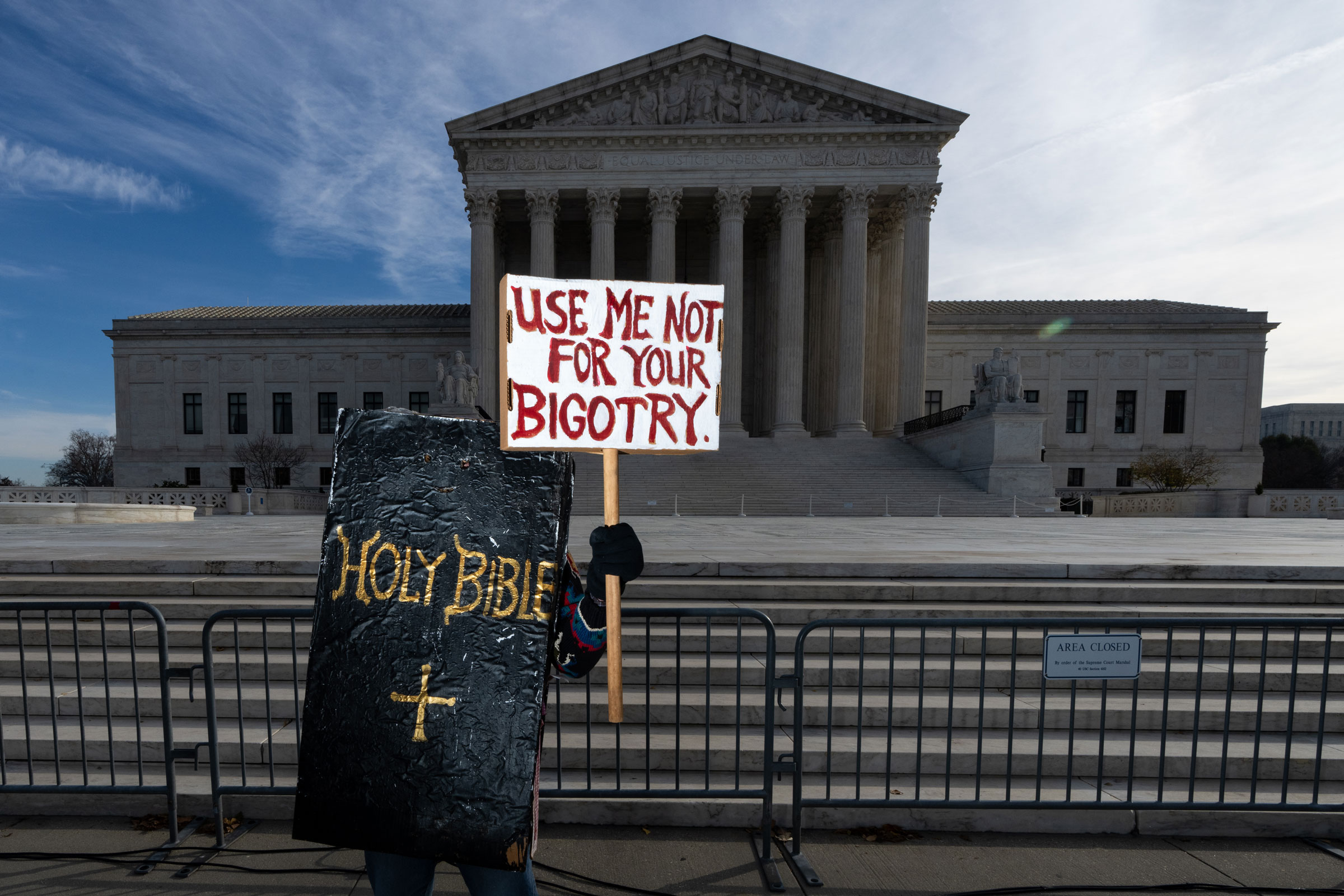
I went to a funeral recently. It was an old friend and former colleague . The big "C," diagnosed six years ago. He outlived the first diagnosis by five years but eventually it caught up. Splendid service, lovely music, fine sermon, many poignant moments. I met dozens of people I hadn’t seen for years. All as it should be.
Except for one thing. The service was billed as a "resurrection" celebration. The printed service paper said so. The preacher said so. Some of the hymns said so. But the resurrection itself—a new bodily life in God’s eventual new creation—was conspicuous by its all-but-absence. And that’s a problem. Not only because most people in our culture don’t know what "resurrection" means , but because they don’t know why it matters .
Resurrection matters because what you ultimately hope for affects the person you are right now. More particularly, it matters because people who really believe in resurrection have a different approach to all of life—including politics. Including issues of justice and mercy, at all levels. Including, dare I say, voting and elections. This affects all of us.
Read More: The Hidden History of Those Who Wrote the Christian Story
So what does "resurrection" mean? Most people today assume that it’s a fancy way of saying "life after death." That’s certainly what I would have picked up from that funeral service. But "resurrection" never meant "life after death," or "going to heaven." Plenty of people in Jesus’ day believed in "life after death," in some form, but were still shocked by talk of "resurrection." That’s because "resurrection" always meant people who had been physically dead coming back to a new life—a new bodily life. Whatever we might mean by "life after death" (the Bible actually says very little about that), "resurrection" is a further stage. It’s life after "life after death." Wherever Jesus was after his horrible death, he wasn’t raised again until the third day. "Resurrection" is the final stage in a two-stage post-mortem journey. With that, a new world is born, full of possibilities.
Jesus’ risen body was the first element in God’s long-promised "new creation." A little bit of God’s new world, coming forward from the ultimate future into our surprised and unready present time. And launching the project of new creation that continues to this day.
Most people in our world, including most churchgoers, have never heard this explained. This robs us, as individuals, of our ultimate hope, leaving us with "pie in the sky when you die," which was never the original Christian vision. In particular, it robs us of the motivation to work for God’s new creation in the present. And that means public life—justice, politics, voting—and all that goes with them.
Read More: The Bible’s Most Misunderstood Verse
Here's the point: Jesus’ resurrection doesn’t mean, "He’s gone to heaven, so we can go there too" (though you might be forgiven for thinking it meant that, granted the many sermons both at funerals and at Easter). It means, "In Jesus, God has launched his plan to remake creation as a whole, and if you are a follower of Jesus you get to be part of that right now." What God did for Jesus, close up and personal, is what he plans to do for the whole world. And the project is already under way.
How does this work? One way of putting it is to say that God intends to put the whole world right in the end. This will be a great act of total new creation, for which Jesus’ resurrection is the advance model. In the present time, though, God puts people right—women, men, children—by bringing them to faith in Jesus and shaping their lives by his spirit. And he does this so that they can, here and now, become "putting-right" people for the world. In the future, God will put the world right; in the present, God does put people right.
And the "put-right" people are called to be "putting-right" people, Sermon-on-the-Mount people, lovers of justice and peace, in and for God’s world. They are to be signs of the new creation which began with Jesus’ resurrection. They are to produce, here and now, further signs of that new world. The church as a whole, and every member, is called to become a small working model of new creation.
And that new creation includes (what we call) social reform. Check out the relevant biblical passages. The Psalms sketch the ideal society: in Psalm 72, the No.1 priority for God’s chosen king is to look after the weak, the poor and the helpless. The prophets add their dramatic pictures, as in Isaiah 11 where the wolf and the lamb will lie down together. (They tried that in a zoo in California, and it worked fine provided they put in a new lamb each day.) Already in Jesus’ day some Jewish teachers were interpreting Isaiah’s picture of the peaceable world in terms of warring nations finding reconciliation. Jesus announced that the time had come for this new way of peace. St Paul picked up that theme, seeing the church as, by definition, a multicultural, multi-ethnic society, without social class or gender hierarchy, as a sign and foretaste of the coming new creation of justice and peace.
The tragedy in the western churches is that, by misunderstanding "resurrection," both the "conservatives" and the "liberals" have robbed themselves of the whole message. The conservatives, eager to tell people how to go to heaven, regard any attempt to improve the present world as a distraction, not realizing that with Jesus’ resurrection the new creation has already been launched. The liberals, having long been taught that science has disproved Jesus’ resurrection, dismiss its importance and pursue their own vision of social improvement.
Hence the unholy stand-off: liberal Christians saying "justice and peace" but denying resurrection; conservative Christians saying "resurrection" but meaning "going to heaven." The problem is that trying to get the result (social justice) without the resource (Jesus’ resurrection) is building on sand. Just as a "heaven " that is not "a new creation" is vacuous (and unbiblical), a liberal agenda that is not rooted in the resurrection is rudderless. The 18th-century Enlightenment tried that experiment (reform without resurrection), and it clearly hasn’t worked. No: it is because God raised Jesus from the dead that ultimate new creation is promised, and present new creation becomes possible.
A true understanding of new creation, instead, starts with the Easter message about Jesus’ new bodily life, and the powerful gift of his spirit. It flows out into creative, healing, and restorative work in God’s world—including, of course, political and public life. That insight slices through our present culture wars, where bits of half-remembered "religion" get muddled up with bits of half-understood "politics." It’s time to reset the terms, both of debate and of action. Get resurrection right and political priorities, including wise voting, will rearrange themselves.
That is the hope. And, in the New Testament, "hope" doesn’t mean "optimism" or "always look on the bright side." It means Jesus.
More Must-Reads From TIME
- Jane Fonda Champions Climate Action for Every Generation
- Biden’s Campaign Is In Trouble. Will the Turnaround Plan Work?
- Why We're Spending So Much Money Now
- The Financial Influencers Women Actually Want to Listen To
- Breaker Sunny Choi Is Heading to Paris
- Why TV Can’t Stop Making Silly Shows About Lady Journalists
- The Case for Wearing Shoes in the House
- Want Weekly Recs on What to Watch, Read, and More? Sign Up for Worth Your Time
Contact us at [email protected]
You May Also Like
- Share full article
Advertisement
Supported by
Talking (or Not) About Your Cancer
More from our inbox:, ‘political anxieties’, a mystery from england’s bronze age.

To the Editor:
Re “ It’s Not Easy to Tell People You Have Cancer ,” by Daniela J. Lamas (Opinion guest essay, March 27):
As a cancer survivor myself, I understand the reluctance of Catherine, Princess of Wales, to speak out about her own diagnosis. However, she has the unique opportunity to alert and educate many people regarding symptoms and treatments. And by speaking calmly and frankly, she has the additional opportunity to help remove the fear and stigma of a cancer diagnosis.
Of course, she has no obligation to do this, but perhaps as time passes and she is no longer in the first stages of shock, she will be able to do a truly selfless thing and help educate people about cancer.
Barbara Mutterperl New York
My mother was diagnosed with breast cancer when I was 12 years old and she was 33. In the 1960s breast cancer was often fatal, and cancer was not discussed publicly. As the oldest child, I think I was told too much, not too little. Counseling would have been very helpful.
I am 75 and had early stage breast cancer four years ago. I was told my treatment would be over 90 percent successful; sharing that information normalized the situation and helped me get through the treatment. I am cancer free.
Some types of cancer have fairly good outcomes, while other types are almost always fatal. The more treatable a cancer is, the more comfortable a patient feels about telling friends about their diagnosis. And sharing information with children under 18 has to be done very carefully.
Catherine, Princess of Wales, has very young children. She and her husband will be careful about how much information to give them, hoping to be honest but not scare them unnecessarily. Expecting her to reveal her diagnosis in more detail would be inappropriate at this point.
Maureen Schild New York
The members of the royal family are funded by the people of Britain. If they do not abdicate their official roles, it is their duty to do good in this world for the people who afford them their sumptuous lifestyle (be it under press coverage under a microscope or not).
So if they are secretive about their cancer diagnosis, it sends a clear message — cancer is a secret, something to hide, to cover up, to be ashamed of — and that is simply awful for the millions of people who are diagnosed with cancer or who have some mysterious health condition that with proper attention is diagnosed, hopefully early, as cancer!
Catherine, Princess of Wales, is not an ordinary person. It is her duty in her role as a country’s figurehead to speak the truth and not cover up.
She and the crown mislead the public in calling her chemotherapy preventative. She is not taking chemo like a flu shot; you can’t go to your doctor and ask for some chemo to prevent you from getting cancer. Chemo kills cancer cells, plain and simple. It is a drug in the anticancer tool kit.
As a survivor of Stage 4 testicular cancer diagnosed 15 years ago, I know how such a diagnosis turns your world and that of those close to you upside down.
Catherine and the crown have the power, the responsibility and the duty to her employers — the people of Britain — and really to the world to speak the truth about her condition, to help them understand about cancer screening, about not shirking from the disease, about living with cancer and getting treatment for it, and about the many cases like mine that can be cured.
Roger S. Merians Simi Valley, Calif.
When I was growing up in the 1950s, people only whispered the letter C for cancer. And no one ever said out loud the possibility of someone being a homosexual. The word gay was never used.
Why do people keep secrets? Sometimes it’s shame; other times we don’t want to experience other people’s reaction to the news, or to worry our family or friends.
I have no trouble telling people about my 2019 cancer diagnosis. When I came out as a lesbian 46 years ago, I was thrilled to finally be out of the closet, but I told less than a handful of people. It took a while to be open about my sexuality.
Every person, famous or not, gets to decide what to reveal and when. But keeping a secret because of shame or embarrassment is very toxic.
Beth Rosen Bronx The writer is a psychotherapist.
Dr. Daniela J. Lamas’s article brought back memories from my diagnosis with spleen cancer in 2005.
I told adult family members and neighbors, but decided not to tell my daughters (then 14 and 9) any specifics, referring vaguely to an abdominal condition that required surgery.
I did not want to derail the ability of the 14-year-old to rebel and act like a normal teen, and I wanted to spare the 9-year-old, who was already a worrier who thought of me as vulnerable. I told myself that if I needed chemotherapy, I would tell my children at that point. Fortunately, I ended up not needing chemo.
What we did not count on was that the children of those adults we had told would see their parents’ emails or texts and inform our children that I had cancer.
It took years for me to regain my children’s trust that I would be truthful and not hide important information from them. So be mindful that your kids have a lot more access to information than we had at their age.
Barbara Quackenbos West Orange, N.J.
Re “ America’s Most Overlooked Political Divide ,” by David French (column, March 25):
I found Mr. French’s description of people on both sides of today’s political divide deciding to “unplug from the news” unsurprising.
Since 2016, patients in my practice, on both the left and the right of the political divide, have reported being distraught by a daily onslaught of political news. Consequently, I began including “political anxieties” as one problem distressing patients who could not tear themselves away from a favorite cable news network’s unending servings of doom and gloom punditry.
My response, and practical advice I follow myself, is suggesting to patients that rather than immersion in distressing cable news, just scan online headlines. Doing so provides a sense of what is going on in the world. However, I also advise not going into the weeds, as doing so only heightens political anxieties.
Some find this to be a reasonable balance between being an anxiously overstimulated citizen and a disengaged one.
Jack Drescher New York The writer, a psychiatrist and psychoanalyst, is past president of the Group for Advancement of Psychiatry.
Re “ Under Centuries of Silt, a Vivid View of Bronze Age Life ” (news article, March 21):
I have not been able to stop thinking about this extremely moving article about the surprisingly rich lives lived by the inhabitants of a Bronze Age village in England nearly 3,000 years ago. It makes one think that the high point of human existence may have actually occurred thousands of years ago.
These people were steeped in beauty, the bounties of nature, the satisfaction of craftsmanship and the joy of one another’s company. In stark contrast to humans today, they lived in quiet harmony with the earth.
The most fascinating mystery to me is why they never returned to salvage their things after, as you report, “a catastrophic fire tore through the compound.” Could it be that they felt no special attachment to their belongings?
As the article stated, these people had the skills to easily move and rebuild their compound. Perhaps they felt that their greatest possession was the earth itself.
Philip Dolin New York
- Newsletters
- Account Activating this button will toggle the display of additional content Account Sign out
The Anti-Abortion Endgame That Erin Hawley Admitted to the Supreme Court
Somewhat lost in the debate around abortion pills and oral arguments that took place at the Supreme Court in FDA v. Alliance for Hippocratic Medicine on Tuesday was one deeply uncomfortable truth: The very notion of what it means to practice emergency medicine is in dispute, with anti-abortion doctors insisting upon a right to refuse treatment for any patient who doesn’t meet their test of moral purity. Indeed, the right asserted is that in the absence of certainty about which patients are morally pure, the doctors want to deny medication to all patients, nationwide.
In public, the plaintiffs in this case—a group of doctors and dentists seeking to ban medication abortion—have long claimed they object to ending “unborn life” by finishing an “incomplete or failed” abortion at the hospital. But in court, they went much further. Their lawyer, Erin Hawley, admitted at oral argument that her clients don’t merely oppose terminating a pregnancy—they are pursuing the right to turn away a patient whose pregnancy has already been terminated . Indeed, they appear to want to deny even emergency care to patients whose fetus is no longer “alive,” on the grounds that the patient used an abortion drug earlier in the process. And they aim to deploy this broad fear of “complicity” against the FDA, to demand a nationwide prohibition on the abortion pill to ensure that they need never again see (and be forced to turn away) patients who’ve previously taken it. This is not a theory of being “complicit” in ending life. It is a theory that doctors can pick and choose their patients based on the “moral distress” they might feel in helping them.
It should come as no surprise that the same judge who tried to ban mifepristone in this case, Matthew Kacsmaryk, has also attempted to legalize anti-LGBTQ+ discrimination in health care nationwide. This is the ballgame: weaponize subjective religious beliefs against secular society to degrade the quality of care for everyone. If you can’t persuade Americans to adopt hardcore evangelical views, exploit the legal system to coerce them into it anyway.
Alliance for Hippocratic Medicine is at once embarrassingly frivolous and existentially important. Don’t let the jokes about how silly the Comstock Act seems , or how speculative the theory of standing is, get in the way of taking a serious look at the claims on offer. The plaintiffs say they are terrified that one day, a patient may walk into their emergency room suffering complications from a medication abortion prescribed by some other doctor. This patient may need their assistance completing the abortion or simply recovering from the complete abortion, which these plaintiffs deem “complicity” in sin. And they say the solution is either a total, nationwide ban on mifepristone, the first drug in the medication abortion sequence, or a draconian (and medically unnecessary) set of restrictions that would place mifepristone out of reach for many patients. (The U.S. Court of Appeals for the 5 th Circuit ruled to reinstate those restrictions at their behest.)
It is a twisted line of logic, one that should never have reached the Supreme Court in the first place. But it is also a product of the court’s past indulgence of outlandish claims about moral “complicity.” As was made plain in the oral arguments and briefing, activist doctors are no longer satisfied with personal conscience exemptions already granted under state and federal law; they now insist that nobody, anywhere, should have access to the abortion pill, in order to ensure that they themselves won’t have to treat patients who took one. At a minimum, they say, they should be able to radically roll back access to the pill in all 50 states to reduce the odds that one of these handful of objectors might someday encounter a patient who took it. This extremist argument lays bare the transformation of the idea of “complicity” from a shield for religious dissenters to a sword for ideologues desperate to seize control over other people’s lives and bodies.
At oral arguments, several justices pressed Hawley, who argued on behalf of Alliance for Hippocratic Medicine, with an obvious retort: Why can’t her clients simply refuse to treat these hypothetical someday patients on the grounds that they cannot help end the “life” of a fetus or embryo? After all, federal law guarantees doctors the right not to have to provide an abortion if doing so is “contrary to his religious beliefs or moral convictions.” Justices Amy Coney Barrett and Brett Kavanaugh secured assurances from Solicitor General Elizabeth Prelogar, early in the arguments, that under no circumstances could the government force any health care provider to ever participate in an abortion in violation of their conscience. Justice Elena Kagan asked Prelogar: “Suppose somebody has bled significantly, needs a transfusion, or, you know, any of a number of other things that might happen.” Would the plaintiffs object to treating them? Prelogar said the record was unclear.
Hawley, who is married to far-right Republican Sen. Josh Hawley, then approached the lectern and cleared up any confusion: Yes, she insisted, treating a patient who has undergone a medication abortion violates the conscience of the plaintiff physicians even if there is no “live” fetus or embryo to terminate anymore. “Completing an elective abortion means removing an embryo fetus, whether or not they’re alive, as well as placental tissue,” Hawley told Kagan. So the plaintiffs don’t object just to taking a “life.” They also object to the mere act of removing leftover tissue, even from the placenta.
Of course, these doctors must remove “dead” fetal tissue and placentas all the time—from patients who experienced a spontaneous miscarriage. By their own admission, the plaintiffs regularly help women complete miscarriages through surgery or medication. Those women they will gladly treat. Other women, though—the ones who induced their own miscarriage via medication—are too sinful to touch. Before the plaintiffs can administer even lifesaving emergency treatment, they need to know the circumstances of this pregnancy loss: Spontaneous miscarriages are OK; medication abortions are not.
Justice Ketanji Brown Jackson, too, zeroed in on this admission. She told Hawley that she had thought the objection was to “participating in a procedure that is ending the life [of the fetus].” Hawley told her no: Any participation in an abortion, even through the indirect treatment of a patient without a “live” fetus, violated the doctors’ conscience. So, wait. What about “handing them a water bottle?” Jackson asked. Hawley dodged the question, declining to say whether helping a patient hydrate would constitute impermissible complicity in sin.
All this is reminiscent of Little Sisters of the Poor , a case about a Catholic charitable group that was afforded an exemption from the Affordable Care Act’s contraception mandate. The Little Sisters were asked to check a box signaling to the government that they could not comply with the mandate, at which point the government would step in to cover their employees. But the Little Sisters refused, viewing this action—the checking of a box to opt out of coverage—as “complicity” in abortion because it would in turn trigger government payment for contraception (which they viewed as abortifacients). The Supreme Court and the Trump administration ultimately indulged the Little Sisters’ claim .
Here, we have emergency room physicians asserting that they will not participate in lifesaving medical intervention unless they approve of the reason for the pregnancy loss. Presumably, if the pregnant patient is an unwed mother, or a gay or transgender person, the doctor would be similarly complicit in sin and decline service. Seen through this lens, since one can never know which sins one is enabling in the ER, each and every day, a narrow conscience exemption becomes a sweeping guarantee that absolutely nobody in the country can ever have access to basic health care, let alone miscarriage management. (Of course, these plaintiffs might focus only on one set of “sins” they see as relevant.) In a country effectively governed by Kacsmaryk and his plaintiff friends, a gay person suffering a stroke could be turned away from any hospital because of his sexual orientation, all to spare a doctor from a glancing encounter with prior sin. As Tobias Barrington Wolff, a professor of law at the University of Pennsylvania Law School, put it to us in an email, this unbounded view of complicity “is part of enacting the social death of people and practices you abhor, which in turn can contribute to the material death of people and practices you abhor.”
One of the most exhausting lessons of post- Roe America is that being “pro-life” definitively means privileging the life of the presumptively sin-free unborn—or even their “dead” remains—over the life of the sin-racked adults who carry them. This is why women are left to go septic or to hemorrhage in hospital parking lots; it is why C-sections are performed in nonviable pregnancies, at high risk to mothers; it’s why the women who sued in Texas to secure exceptions to that state’s abortion ban are condemned by the state as sinners and whores . And it’s why—in the eyes of the Alliance for Hippocratic Medicine — it is a greater hardship for a physician to “waste precious moments scrubbing in, scrubbing out” of emergency surgery, as Hawley put it, so long as they don’t believe that the emergency warrants their professional services, than it is for a pregnant person, anywhere in the country, including in states that permit abortion, to be forced to give birth.
At oral argument, Hawley explained that her clients have “structured [their] medical practice to bring life into the world. When they are called from their labor and delivery floor down to the operating room to treat a woman suffering from abortion drug harm, that is diametrically opposed to why they entered the medical profession. It comes along with emotional harm.” The emotional harm alleged here is that unless these doctors approve of the specific circumstances of the ER visit, they violate not only their own medical preference but also their religious convictions. But they will never truly know enough about the sins of their patients to be able to shield themselves against being a link in a chain of subjective lifelong sin. And to be a doctor, especially an emergency physician, should be to understand that your patients’ private choices and spiritual life are not really open to your pervasive and vigilant medical veto. This deep-rooted suspicion of patients deemed insufficiently pure for lifesaving treatment didn’t begin with the availability of medication abortion. It will assuredly not end there.
The Invisible Work of America’s Domestic Workers
With few protections, the day-to-day demands of caregivers can go unnoticed..
Chloe Aftel 23 hours ago

Care worker Vivian Siordia with Colin Campbell, for whom she works. Chloe Aftel
- Share on Facebook
- Share on Twitter
This story is a collaboration with the Economic Hardship Reporting Project and Magnum Foundation . We asked photographers to show us the paradox of today’s labor movement. Even as the popularity of unions has grown over the last decade, actual membership has continued to decline . Can new enthusiasm revitalize American labor? Read about this unique moment for workers here .
Domestic workers perform grueling work with few protections. They provide care in isolated settings, leaving their essential labor all too often hidden. It can be a difficult job and a complicated one. When you work in a home, lines blur.
For decades, feminist activists have said that work in the home—often performed for no pay by wives, mothers, and daughters—has been misunderstood as separate from “real” labor. This feminized care has been relegated and detached from a labor movement focused on men.
In the United States, such work has also been done by Black women who have had to organize aggressively against the odds. Infamously, domestic workers were excluded from the labor agenda during the New Deal. And, since then, they have had to fight to catch up to standards enshrined for others in the law. The National Domestic Workers Alliance and others have sought to change the state of play. After the pandemic , there has also been an uptick in interest in movements like Wages for Housework —a campaign in the 1970s to organize and recognize work in the home.
In this project, Chloe Aftel highlights the day-to-day demands of these workers who often go unnoticed. She follows Vivian Siordia and Liezl Japona, both care workers in California, showing the daily ups and downs of such labor. Both Siordia and Japona think that more organizing and aid to care workers could help make the job better.

Care worker Vivian Siordia dressing Colin Campbell, who has cerebral palsy, in the morning.

Colin’s shoes in his bedroom. Siordia has been caring for him for a year. Before, she worked as a teacher.

Siordia lifting Colin out of bed in the morning. “Unionization is important to me,” she says of efforts to organize home workers. “I would like to go in that direction.”

Siordia helps Colin get dressed in the morning.

Arianne Campbell makes breakfast, including pancakes, for Colin, her son, and Siordia. “Arianne is very professional, and I am very lucky that my life and space are protected,” Siordia told me. “For others, bringing a live-in caregiver, sometimes boundaries can be overstepped. Personal rights should be a given.”

Siordia and Campbell eat together after Colin has finished his meal.

Siordia gets ready to take Colin out to play with his basketball.

Colin and Siordia play with a basketball in the hallway of their apartment complex in the morning. Originally, Siordia had planned to be a nanny and then saw an opportunity to work for Arianne Campbell. “It was a big new step for me that worked out,” she says.

Colin and Siordia work on reading skills.

Arianne shows Colin what is coming up for the week on his wall calendar.

Vivian Siordia at home.

Care worker Liezl Japona gives Dr. Irene Goldenberg her first round of medications for the day at her home in Los Angeles. Japona is affiliated with Hand in Hand, a national group of employers of nannies, house cleaners, and home attendants advocating for better labor practices and affordable, accessible homecare, both in solidarity with workers.

Japona has worked as a caregiver for 23 years—18 in the Middle East and five in the United States. She spends time talking with Dr. Irene after her first round of medications.

Japona does the dishes after preparing breakfast for Dr. Irene.

Japona picks out clothing options for Dr. Irene. Currently, Japona works only 15 hours a week.

Japona helps Dr. Irene put on jewelry for the day after helping her get dressed.

Japona waits for Dr. Irene to come down the stairs and prepares her walker.

Japona does laundry for Dr. Irene.

Care worker Liezl Japona at her home.

Florida Supreme Court Approves a Six-Week Ban—And Lets an Abortion Rights Ballot Measure Move Forward
Julianne McShane

Trump’s Truth Social Lost $58 Million Last Year!

She Has Investigated Allegations of Sexual Violence in War Around the World. Here’s What She Wants You to Know.

Chloe Aftel
We Recommend

Republicans Are Suing to Block Another Biden Plan to Provide Student Debt Relief
Hannah Levintova

Disabled Drivers Can’t Use Many Electric Car Chargers. It Doesn’t Have to Be This Way.
Julia Métraux
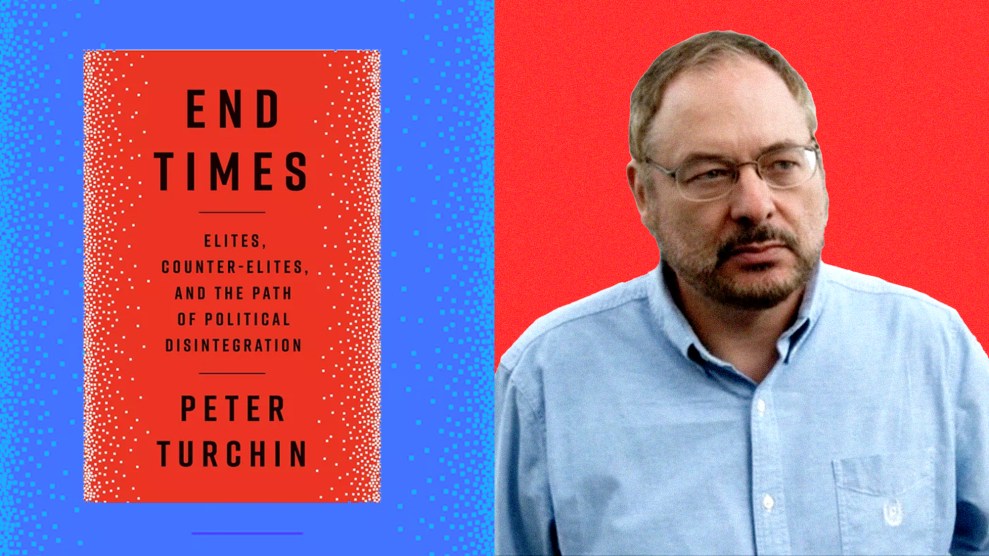
An Academic’s Grand Unified Theory on Why Things Are Getting Worse
Ali Breland

Protesters Are Shutting Down Traffic Over Gaza. Lawmakers Are Calling It Terrorism.
Nia t. evans

This Easter, “Egg Math” Is the Only Form of TikTok Math I’ll Endorse
Jackie Flynn Mogensen
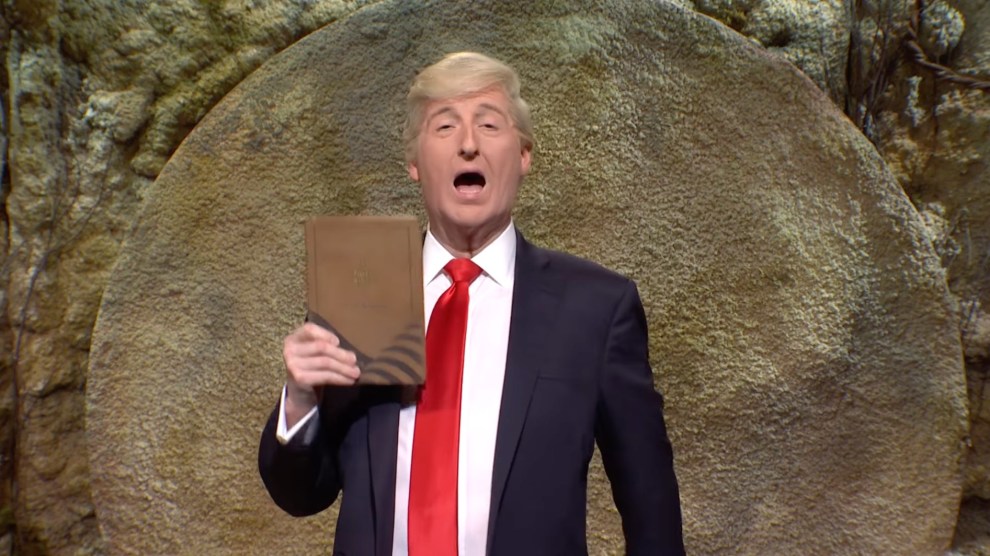
No One Can Parody Donald Trump Better Than Himself

Amid “Rewilding” Trend, a 2,800-Acre English Farm Will Turn to Grassland
Patrick Barkham

Easter Falls on Trans Day of Visibility This Year. The Right Blames Biden.
Sign up for our free newsletter.
Subscribe to the Mother Jones Daily to have our top stories delivered directly to your inbox.
By signing up, you agree to our privacy policy and terms of use , and to receive messages from Mother Jones and our partners.
Get our award-winning magazine
Save big on a full year of investigations, ideas, and insights.
Support our journalism
Help Mother Jones ' reporters dig deep with a tax-deductible donation.
Independent. In print. In your mailbox.
Inexpensive, too! Subscribe today and get a full year of Mother Jones for just $14.95.

Bold. Brave. Beautiful.
Award-winning photojournalism. Stunning video. Fearless conversations.
Looking for news you can trust?
We noticed you have an ad blocker on..
Can you pitch in a few bucks to help fund Mother Jones' investigative journalism? We're a nonprofit (so it's tax-deductible), and reader support makes up about two-thirds of our budget.
We noticed you have an ad blocker on. Can you pitch in a few bucks to help fund Mother Jones' investigative journalism?
Don't let an algorithm decide what news you see.
Sign up for the free Mother Jones Daily newsletter and follow the news that matters.

IMAGES
VIDEO
COMMENTS
Mass persuasion has to be linguistically unobtrusive. In the realm of political theater, if you want to "make fetch happen" you crucially have to stay "on message". As we consume that message again and again, we are also being taught how to receive it. Against the "shock and awe" onslaught of mass repetition, new phrases and ...
Political linguistics. Political linguistics is the study of the relations between language and politics. It argues that language gives origin to the state. The reason is that when humans perform linguistic communication, they use media. Media extend the distance of linguistic communication. Humans interact with one another on a large scale.
Patricia L. Dunmire*. Kent State University. Abstract. This essay overviews the body of research known as political discourse analysis (PDA). I begin by. situating this work within the linguistic ...
Summary. This chapter considers "political discourse" as the linguistically grounded analysis of political language. While there are many other areas that focus on political discourse, for example, "rhetoric," there is limited concern with language theory and the role of language in the construction of the "political" itself.
This essay overviews the body of research known as political discourse analysis (PDA). I begin by situating this work within the linguistic and political turns that took place in the latter part of the 20th century within the human and social sciences.
Julien Perrez is a Professor of Dutch linguistics at Liège Université (ULiège), Belgium. He graduated from the Université de Liège (MD) and from the Université catholique de Louvain (PhD). His teaching and research interests include foreign language learning (especially French-speaking learners of Dutch), and cognitive semantics, focusing more specifically on the expression of spatial ...
Power, influence, and authority : an essay in political linguistics by Bell, David V. J. Publication date 1975 Topics Communication -- Social aspects, Communication in politics, Power (Social sciences), Authority, ...
Combining a linguistic landscape approach with analytical tools from linguistic anthropology, this paper explores how political discourse are articulated in imagery and texts in the high school ...
Power, Influence, and Authority: An Essay in Political Linguistics. David V. J. Bell The Descriptive Analysis of Power. Jack H. Nagel . Donald S. Vaughan
While the political scientist has written the su-perior scholarly work, the two economists have written the best critique of current pollution policies and a strong argument for adopting different pollution control strategies. RONALD 0. LOVERIDGE, University of California, Riverside Power, Influence, and Authority: An Essay in Political ...
This is a new entry for the "Encyclopedia of Applied Linguistics" (2015, forthcoming), edited by Carol A. Chappelle and Lia Plakans and published by Wiley-Blackwell. It is brief contribution (co-authored by Kingsley Bolton and Joseph Alvaro) which deals with ideology, power and propaganda in political language from a world Englishes perspective.
The topic of Language and Ideology has increasingly gained importance in the linguistic sciences. The general aim of critical linguistics is the exploration of the mechanisms of power which establish inequality, through the systematic analysis of political discourse (written or oral). This reader contains papers on a variety of topics, all related to each other through explicit discussions on ...
In the following, let us summarise how the papers in the present issue apply the procedural features outlined in Fig. 1 to the study of language use in political settings: 1. The linguistic anchor of cross-cultural pragmatic research implies that the researcher narrows down her focus of inquiry to phenomena that can be captured strictly through ...
This essay overviews the body of research known as political discourse analysis (PDA). I begin by situating this work within the linguistic and political turns that took place in the latter part of the 20th century within the human and social sciences. I then discuss different conceptions of what comprises the political and the appropriate objects of study for PDA.
Political Science, Linguistics. Journal of Humanities and Social Sciences Studies. 2021. Language is essential not only in maintaining interpersonal relationships but also in achieving other social or political goals. In politics, the language is a tool creatively used by politicians to…. Expand. PDF. 2 Excerpts.
David Beaver is professor of linguistics and philosophy at the University of Texas at Austin and director of the UT Cognitive Science Program. His books include Presupposition and Assertion in Dynamic Semantics and Sense and Sensitivity: How Focus Determines Meaning.Jason Stanley is the Jacob Urowsky Professor of Philosophy at Yale University. He is the author of How Fascism Works: The ...
David V.J. Bell, Power Influence, and Authority: An Essay in Political Linguistics. Don Mills, Oxford University Press, 1975, pp. vii, 131 - Volume 9 Issue 3
This essay overviews the body of research known as political discourse analysis (PDA), situating this work within the linguistic and political turns that took place in the latter part of the 20th century within the human and social sciences. This essay overviews the body of research known as political discourse analysis (PDA). I begin by situating this work within the linguistic and political ...
Although one could argue that this seminal essay on 20th-century linguistics was written merely to lament the "general collapse" of language as a reflection of the general collapse of civilization following the Second World War, Orwell's ultimate purpose is to show that social activists can unduly manipulate language for their own ends by ...
The Definition of Linguistics is the scientific study of language. As a science, linguistics are divided into several perspective such as in the methodologies we can find historical or comparative linguistics and descriptive linguistic. Then in the time series of linguistics are synchronic and diachronic linguistics.
Lozada notes that the warmongers enjoy "a narrative advantage": peace is boring. Tiny linguistic tics mark the clash between two versions of America's fabled past and its prophetic future.
Get resurrection right and political priorities, including wise voting, will rearrange themselves. That is the hope. And, in the New Testament, "hope" doesn't mean "optimism" or "always look on ...
QUEENS, N.Y.—For many New Yorkers, the surge in illegal crossings at the southern border looks like this: massive white tents on an unused part of a psychiatric hospital campus and a dozen of ...
Language , Ideology and Power : a Critical Approach to Political Discourse. Published 2011. Linguistics, Political Science. This research which adapts a critical approach to analyze written discourse is intended to take the explanations and interpretations of the ideological relationships to the more applied spheres of foreign language education.
But it was political gold and spread nationwide. During his first year as president, Mr. Reagan cut the highest personal income tax rate from 70 percent to 50 percent.
It seems unwise to hitch the anti-abortion movement's star to a 19 th-century anti-vice movement known for "Comstockery": censoring political speech, undermining democratic norms, and ...
Responses to an Opinion essay by Dr. Daniela J. Lamas. Also: "political anxieties"; a mystery from England's Bronze Age.
Somewhat lost in the debate around abortion pills and oral arguments that took place at the Supreme Court in FDA v. Alliance for Hippocratic Medicine on Tuesday was one deeply uncomfortable truth ...
Published 1986. Linguistics, Political Science. Linguists in the past two centuries have, for the most part, approached language as an autonomous entity; their practice has been to study languages without considering the culture, society, or beliefs of the speakers. "Autonomous linguistics" has been attacked from both the left and the right.
Domestic workers perform grueling work with few protections. They provide care in isolated settings, leaving their essential labor all too often hidden. It can be a difficult job and a complicated ...